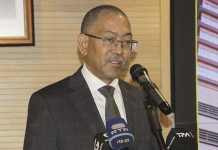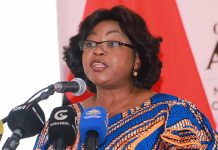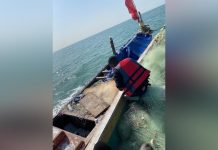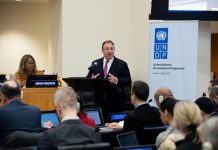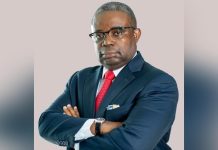Africa-Press – Angola. The recent praise from members of the United Nations Security Council (SC) regarding Angola’s efforts to pacify the East of the Democratic Republic of Congo (DRC) will further project the country’s image in the International System.The prediction comes from the professor of International Relations Osvaldo Mboco, for whom this gesture from the UN will further engage the mediator, President João Lourenço, to continue with the actions he is carrying out to achieve definitive peace in that region of the DRC.
“It is a recognition that, to a certain extent, projects Angola’s image in the International System as a country concerned with peace and stability at regional and continental level”, highlighted the academic.
However, Mboco defends the need for member countries of the Security Council to adopt a “much clearer stance”, which is in line with Angola’s actions to pacify the East of the DRC.
“In other words, greater support, from a practical point of view, for important issues within the organization itself and the role that these countries can play in unblocking certain dossiers at the United Nations level,” he stressed.
In Mboco’s view, it is also necessary for there to be synergies at the Security Council level to support the DRC in modernizing its army, so that it can combat the negative forces that jeopardize the country’s stability and sovereignty.
The academic explained that this modernization must be supported by military equipment and training in the area. The international relations expert believes that Angola should not take on this mission alone; other neighboring countries and the international community should join the efforts to bring peace to the region.
“That is why neighboring countries are of utmost importance, because a lot of the war material that reaches the rebel groups passes through a transit country. And if the financing and supply lines that exist in these countries are cut, they could undoubtedly help in what could be a reduction in the combat capacity, on the ground, of the rebel groups, which, at times, demonstrate and present greater capacity than the DRC army”, he stressed.
M23 at the negotiating table
For Nkikinamo Tussamba, also an expert in International Relations, this praise from the members of the United Nations Security Council for Angola’s actions for peace in the East of the DRC adds more responsibility to President João Lourenço and demonstrates that the country has been fulfilling its role as a mediator in the process well.
“It means that everything Angola has been doing, for some time now, is attracting the attention and curiosity of the international community,” he stressed.
Nkikinamo Tussamba believes that Angolan mediation can achieve even more satisfactory results in this process if it allows the presence of the M23 at the negotiating table for peace in the eastern DRC. In Nkikinamo Tussamba’s opinion, the M23 is an actor that “cannot be ignored” in this process.
Position of the Security Council
On the 25th of this month, the members of the United Nations Security Council issued a press release on the Democratic Republic of the Congo (DRC), in which they praised the organization of the 5th ministerial meeting in Luanda, held on the 12th of this month.
The members of that United Nations body, whose mandate is to ensure the maintenance of international peace and security, express their unwavering support for the mediation efforts underway, through the Luanda Process, led by President João Lourenço.
The members also called on all parties to scrupulously comply with the ceasefire agreement signed by the DRC and Rwanda on 30 July, with the mediation of Angola.
The members of the UN Security Council condemned, on the other hand, the recent violations of the ceasefire by the M23, reaffirming their full support for the ongoing peace processes led by the region, as well as underlining the importance of such efforts to reverse the escalation of violence in the east of the DRC, which is worsening security and stability in the Great Lakes Region.
All parties involved in the conflict were urged to cooperate fully with Angola in order to accelerate the finalization and implementation of the harmonized plan for the neutralization of the Democratic Liberation Forces of Rwanda (FDLR) and the withdrawal of foreign forces.
The UN Security Council members further urged the DRC and Rwanda to engage in the process in good faith and seize the opportunity to conclude a peaceful and lasting solution to the protracted conflict in the region.
In this regard, they reiterated their continued support for all efforts aimed at achieving a sustainable cessation of hostilities, paving the way for a diplomatic solution and lasting peace, underlining the importance of the Luanda and Nairobi Processes.
The members of the Security Council also reaffirmed their support for the African Union, the East African Community, the International Conference on the Great Lakes Region and the Southern African Development Community (SADC) for their work to make Africa a continent of peace and sustainable development.
The members of the UN decision-making body called on all donors to urgently accelerate and increase their support under the 2024 Humanitarian Response Plan, and expressed deep concern about the heavy toll of the ongoing conflict on civilians, including women, the elderly and children, as well as continued violations of international humanitarian law and human rights violations and abuses, including gender-based violence, sexual abuse in conflict and the recruitment, use and abduction of children, which must end.
The members of the Security Council also reiterated their condemnation of all armed groups operating in the DRC, such as the M23, the ADF and the FDLR, and of foreign military support provided to the M23. They therefore demanded the cessation of such support and the immediate withdrawal of any external parties from the territory of the DRC, and condemned the support provided by military forces to certain armed groups, such as the FDLR.
The members of the Security Council strongly condemned the exploitation of and illicit trade in natural resources by armed groups and transnational criminal networks that support these groups and stressed that these illegal activities undermine lasting peace and development.
UN and African Union concerned about humanitarian situation
The African Union Peace and Security Council and the members of the United Nations Security Council expressed, on 18 October, deep concern at the prevailing insecurity and deteriorating humanitarian situation in the eastern Democratic Republic of the Congo, caused by persistent violence and human rights abuses and violations of international humanitarian law by the M23 and other armed groups.
Meeting at their 18th annual joint consultative meeting, the AU Peace and Security Council and members of the UN Security Council urged that all those implicated in human rights abuses and violations be held accountable.
On the other hand, they welcomed the efforts of the DRC, neighbouring countries and the entire region towards the stability of the eastern DRC and the Great Lakes region, based on the commitments made under the Framework Agreement for Peace, Security and Cooperation in the Democratic Republic of the Congo and the Region, as well as the Luanda and Nairobi Processes.
They called on all parties to fully implement all commitments made in this context, stressing that the challenges facing the Great Lakes region cannot be resolved by military means alone. In this regard, they stressed the need for continued political processes to address the root causes of the conflict in the region, while respecting the territorial integrity and sovereignty of the DRC.
jornaldeangola
For More News And Analysis About Angola Follow Africa-Press


